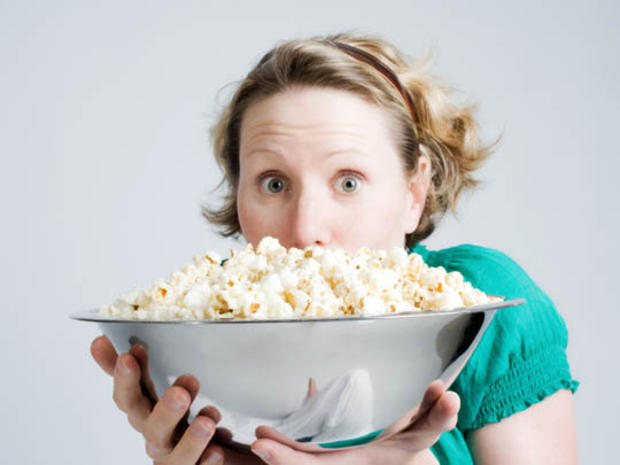Lack of sleep may make junk food more appealing
(CBS News) Guilty of unhealthy snacking when you stay up late at night? A new study shows that eating sweets and chips looks like a better idea for people who haven't had a lot of sleep.
Subjects who looked at pictures of unhealthy snack food had more brain activity in the reward centers of their brain when they had restricted sleep compared to those who were able to get a full night's rest.
Leaving the couch, eating more fruits and vegetables may lead to sustained healthier habits
"The same brain regions activated when unhealthy foods were presented were not involved when we presented healthy foods," study author Dr. Marie-Pierre St-Onge, an assistant professor at Columbia University's Institute of Human Nutrition in New York City, said in the press release. "The unhealthy food response was a neuronal pattern specific to restricted sleep. This may suggest greater propensity to succumb to unhealthy foods when one is sleep restricted."
The study is being presented today at SLEEP 2012, the 26th annual meeting of the Associated Professional Sleep Societies (APSS) in Boston.
For the study, researchers at St. Luke's - Roosevelt Hospital Center and Columbia University in New York performed a functional magnetic resonance imaging (fMRI) on 25 men and women of normal weight. The scans were taken after five days of either sleep restriction - in which the subjects were only allowed to sleep four hours a night - or normal sleep of up to nine hours a night.
While in the scanner, the subjects looked at photos of healthy food - like fruits, vegetables and oatmeal, and unhealthy food - such as candy or pepperoni pizza and nonfood items, like office supplies.
The people who were sleep-deprived showed activity in the reward centers of their brains when they saw pictures of unhealthy food. When people were allowed a full night's rest, there was no activation in the rewards center.
"I think it's related to cognitive control," St-Onge told HealthDay. "Your guard is somewhat down when you're tired and sleep deprived. Even though you know you probably shouldn't eat certain foods, when you're tired you might just decide to go for it."
St-Onge suggested that getting a full night's sleep - between seven to eight hours nightly - may help people make better food choices.
